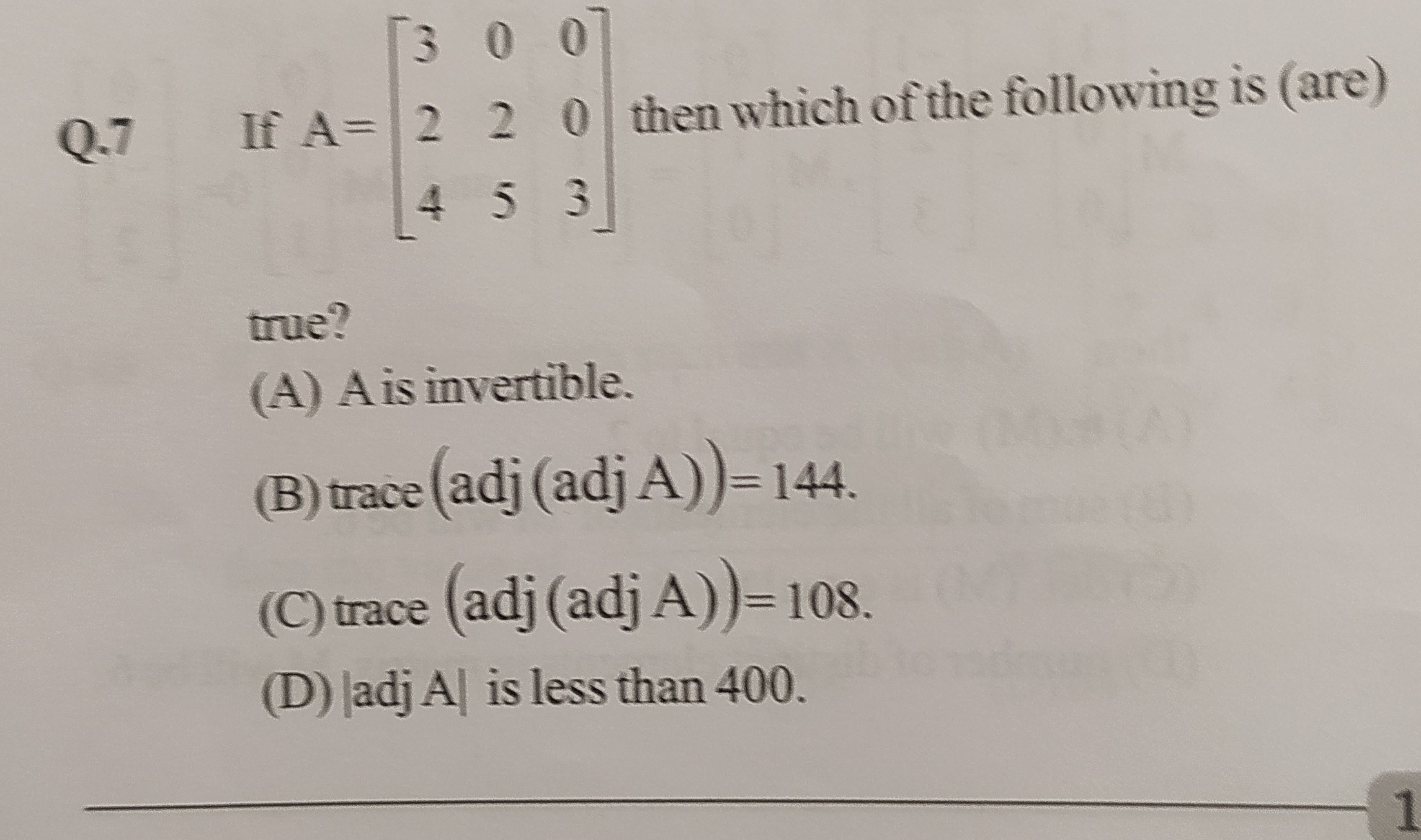Question
Question: If A=$\begin{bmatrix} 3 & 0 & 0 \\ 2 & 2 & 0 \\ 4 & 5 & 3 \end{bmatrix}$ then which of the following...
If A=324025003 then which of the following is (are) true?

A is invertible.
trace (adj (adj A))=144.
trace (adj (adj A))= 108.
|adj A| is less than 400.
(A), (B), (D)
Solution
Let the given matrix be A=324025003. The order of the matrix A is n=3.
We analyze each statement:
(A) A is invertible.
A matrix A is invertible if and only if its determinant is non-zero. The given matrix A is a lower triangular matrix. The determinant of a triangular matrix is the product of its diagonal elements. ∣A∣=det(A)=3×2×3=18. Since ∣A∣=18=0, the matrix A is invertible. So, statement (A) is true.
(B) trace (adj (adj A))=144.
(C) trace (adj (adj A))= 108.
For a non-singular matrix A of order n, the adjugate of the adjugate of A is given by the property: adj(adj A)=∣A∣n−2A. In this case, n=3 and ∣A∣=18. Since ∣A∣=0, A is non-singular. adj(adj A)=∣A∣3−2A=∣A∣1A=∣A∣A=18A. The trace of a matrix is the sum of its diagonal elements. The trace of a scalar multiple of a matrix is the scalar multiple of the trace. trace(kA)=k trace(A). trace(adj(adj A))=trace(18A)=18 trace(A). The trace of A is the sum of its diagonal elements: trace(A)=3+2+3=8. So, trace(adj(adj A))=18×8=144. Statement (B) says trace (adj (adj A))=144, which is true. Statement (C) says trace (adj (adj A))= 108, which is false.
(D) |adj A| is less than 400.
For a non-singular matrix A of order n, the determinant of the adjugate of A is given by the property: ∣adj A∣=∣A∣n−1. In this case, n=3 and ∣A∣=18. ∣adj A∣=∣A∣3−1=∣A∣2=182. 182=324. The statement says |adj A| is less than 400. 324<400. This inequality is true. So, statement (D) is true.
Based on the analysis, statements (A), (B), and (D) are true.
